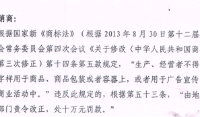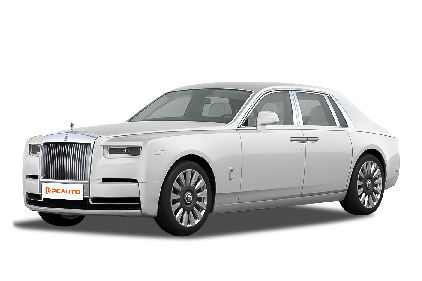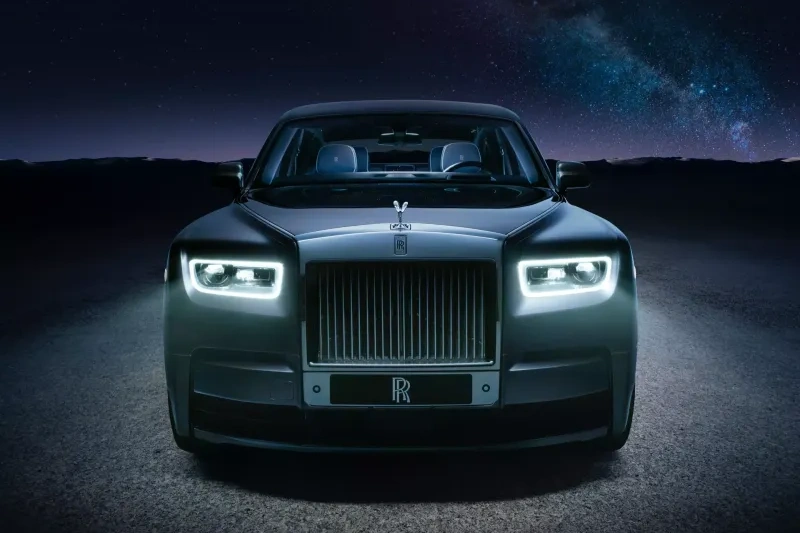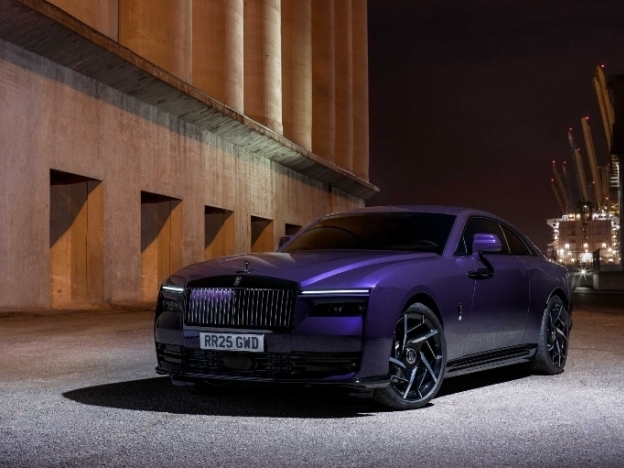Q
Is the 2018 Rolls-Royce Phantom reliable?
The 2018 Rolls-Royce Phantom, as a top-tier luxury sedan, stands out with exceptional reliability in its class. Thanks to Rolls-Royce's meticulous craftsmanship and stringent quality control, the powertrain, chassis, and electronics undergo rigorous testing to ensure long-term stability. Especially in Malaysia's hot and rainy climate, its body rust-proofing and air conditioning system are optimized for high-temperature environments, further enhancing durability. While maintenance costs for the Phantom are on the higher side, regular servicing at authorized centers effectively prevents potential issues. Rolls-Royce's after-sales service, including global warranty and roadside assistance, adds an extra layer of security for owners. For Malaysian consumers, when buying a luxury car, local road conditions and fuel quality should also be considered. It's advisable to choose official import channels to ensure vehicle adaptability. Additionally, the Phantom's customization options allow owners to tailor configurations to personal preferences, which is one of its unique selling points. Overall, the 2018 Phantom excels in both reliability and luxury experience, making it ideal for buyers seeking the ultimate in quality.
Special Disclaimer: This content is published by users and does not represent the views or position of PCauto.
Related Q&A
Q
Is the Phantom considered a luxury car?
The Rolls-Royce Phantom is undoubtedly a top-tier luxury car, representing the pinnacle of automotive craftsmanship. Renowned worldwide for its exquisite hand-built construction, ultimate comfort, and unparalleled brand heritage, the Phantom stands as a true icon of opulence. Here in the Malaysian market, it's more than just a car—it's a powerful symbol of status and prestige, highly coveted by discerning high-end consumers.
From its signature coach doors that open gracefully to the lavish interior adorned with premium leather and rich wood veneers, every detail exudes luxury. Add to that the highly personalized customization options, and the Phantom perfectly embodies what "ultra-luxury" truly means. It's also worth noting that Malaysia's hot and rainy climate can be tough on vehicles, but the Phantom's top-shelf materials and precision Craftsmanship ensure it holds up exceptionally well in local conditions, maintaining its allure through the years.
Sure, there are rivals like the Bentley Mulsanne and Mercedes-Maybach S-Class in the same league, but the Phantom still holds a unique edge when it comes to brand prestige and the depth of handcrafted customization it offers. For Malaysian buyers who demand nothing but the absolute best in luxury, the Phantom is undoubtedly the crowning choice at the very top of the pyramid.
Q
Which is better, Phantom or Ghost?
Both the Rolls-Royce Phantom and Ghost are pinnacle luxury sedans, but they carve out distinct niches in terms of positioning and character. The Phantom, as the brand's flagship, stretches longer and places the utmost emphasis on that plush rear-seat experience – it's tailor-made for buyers chasing the absolute pinnacle of prestige. That iconic coach door design and handcrafted interior? Pure, unadulterated top-tier craftsmanship. The Ghost, on the other hand, is a touch more compact but leans harder into the driving dynamics. Its powertrain's tuned with a bit more verve, though it never sacrifices that quintessential Rolls-Royce ride comfort. It's the one for the owner who actually enjoys getting behind the wheel themselves.
For Malaysian customers, both handle local roads admirably, but the Phantom's extended wheelbase might feel a bit cumbersome on tighter lanes. The Ghost's nimbleness makes it the more city-friendly companion in that regard. Notably, both share that sonorous 6.75-liter V12 heart, but the Ghost adds a 48V mild-hybrid system to eke out better fuel efficiency – a definite plus given Malaysia's not-so-friendly fuel prices. When it comes to options, the Phantom opens the door to几乎 limitless personalization, while the Ghost's offerings are a touch more standardized, though still far from basic.
At the end of the day, it all boils down to what you're after. If it's about making an uncompromising statement of luxury and nailing those business reception, the Phantom reigns supreme. But if driving engagement and everyday usability are higher on your list, the Ghost is the smarter choice.
Q
How much is the 2018 Phantom?
The 2018 Rolls-Royce Phantom's price tag in Malaysia can vary quite a bit depending on the spec, optional extras, and all the taxes involved. Brand-new, you're typically looking at somewhere between 4 million to 5 million Ringgit, but that really hinges on the dealer's quote and how bespoke you want your ride to be. For used models, the price fluctuates based on condition, mileage, and service history, usually landing in the 2.5 million to 3.5 million Ringgit ballpark.
As Rolls-Royce's flagship, the Phantom is famous for its handcrafted interior, that smooth 6.75-liter V12 engine, and the iconic "Magic Carpet" suspension system—total overkill in the best way for folks who demand the absolute pinnacle of luxury and comfort. Over here in Malaysia, these ultra-luxury machines get hit with pretty steep import duties and consumption taxes, so you’re definitely paying a premium compared to their home market.
If you’re thinking about picking one up, I’d strongly suggest reaching out to the official dealers for the latest quotes. And if you’re eyeing a used Phantom, make sure to check for a full service history and proper import documentation to guarantee the car’s up to scratch. Also, keep in mind that maintaining a Phantom isn’t cheap—factor in a solid budget for servicing to keep that luxury experience top-notch for the long haul.
Popular Cars
Model Year
Car Compare
Car Photo
Latest Q&A
Q
What is the top selling car brand in Malaysia 2025?
Perodua was the best-selling brand in the Malaysian automotive market in 2025, with total annual sales reaching 359,904 units, far exceeding Proton's 151,561 units in second place. This achievement confirms its absolute advantages in cost-effectiveness and market penetration as a local brand. Toyota ranked third with 129,085 units, continuing to lead the non-national car segment, while Honda ranked fourth with 75,599 units, reflecting the solid position of Japanese brands in the traditional fuel vehicle sector. Notably, Chinese brands Chery and BYD entered the top six with 31,666 units and 14,407 units respectively, with year-on-year growth rates as high as 60% and 68%, demonstrating the success of their electric vehicle and cost-effective SUV strategies. From the monthly data, Perodua's monthly sales remained stable at over 30,000 units, and set a record of 33,657 units in November, with its flagship model Bezza continuing to lead the segment. Overall, the market pattern in 2025 showed a situation of dominance by the two national car giants, steady performance of Japanese brands, and the rise of Chinese brands. Although electric vehicle brands like Tesla did not enter the top ten of the year, their monthly sales have exceeded 1,300 units, indicating that future competition will become more diversified.
Q
What is the richest car in Malaysia?
Currently, the most expensive car model in the Malaysian market is the Bugatti Brouillard 2026, priced at a staggering MYR 90,000,000. This car represents the pinnacle of the ultra-luxury automobile sector. Its W16 engine and extreme lightweight design make it a symbol of performance and luxury. Second is the Bugatti Centodieci 2022, priced at MYR 30,000,000. This limited-edition model pays tribute to the classic EB110 and only 10 units were produced worldwide. The Ferrari F80 series ranks third with prices ranging from MYR 15,600,000 to MYR 16,000,000, and its hybrid system showcases the brand's cutting-edge technology. It is worth noting that the prices of ultra-luxury cars are significantly influenced by factors such as limited production, handcrafted customization, and import duties. Bugatti models are generally fully imported, while some Ferrari models can be customized through official channels. In comparison, locally assembled luxury cars in Malaysia, such as the Porsche Cayenne CKD version, are more competitively priced, but top-tier supercars are still mainly imported from European original factories, and their price systems are basically in line with the international market.
Q
Which car brand has the best resale value in Malaysia?
In the Malaysian used car market, Japanese brands such as Toyota and Honda, as well as local brands Perodua and Proton, usually have high resale value retention rates. Among them, models like Toyota Hilux and Perodua Myvi are highly favored for their durability and low maintenance costs. Although German cars like Mercedes-Benz are common in the used car market, their residual value rates are slightly lower than those of mainstream Japanese models due to high maintenance costs. Local brands can maintain relatively stable prices when resold by virtue of their high cost performance and extensive after-sales networks. For example, Proton X50 has shown outstanding residual value performance in recent years due to the technical endorsement from its cooperation with Geely. It should be noted that vehicle residual value is affected by multiple factors such as vehicle condition, mileage, market demand, and economic environment. It is recommended to refer to data from authoritative used car platforms or professional evaluation reports before purchasing a car.
Q
What is the best selling Chinese car in Malaysia?
Currently, the best-selling Chinese brand car in the Malaysian market is Chery, which sold 31,666 units in 2025, ranking fifth in the brand sales list with a year-on-year growth of 60%. Its compact SUV Jaecoo J7 exceeded 10,000 units in sales as a single model, becoming the most outstanding Chinese model in the local market. BYD followed closely with 14,407 units sold, a year-on-year increase of 68%, primarily driven by its new energy models. In terms of growth trends, both Chery and BYD exhibit strong upward momentum. Chery better meets local consumer demand with its cost-effective fuel and hybrid models, while BYD is gradually expanding its market share through its advantages in electrification technology. Other Chinese brands such as Great Wall Haval and Jetour have annual sales below 5,000 units, showing a significant gap compared to the leading brands. Notably, Chery has maintained a growth rate exceeding 60% for two consecutive years, with its product positioning highly aligned with Malaysian consumer preferences. It is expected to retain its leading position among Chinese brands in the near term.
Q
Who has the best car history report?
In Malaysia, as representatives of local automotive brands, Proton and Perodua possess the most comprehensive and historically significant reports on automotive development. Since its establishment in 1985, Proton has gradually achieved localization by adopting Mitsubishi's technology; its models such as Saga and Persona have become national car icons, and in recent years, it has launched SUV models like the X70 and ventured into the electric vehicle sector. Perodua, through its partnership with Daihatsu, has captured approximately 40% of the market share with economical compact cars such as Myvi and Axia, and its reports document the transformation from imported component substitution to independent R&D. Both brands regularly release production and sales data as well as technical white papers through the Malaysian Automotive Association (MAA), while third-party platforms like AutoBuzz and Wapcar also provide long-term reliability tracking reports based on user feedback. Notably, local brand reports typically encompass government policy support (e.g., domestic tax incentives), local supply chain integration, and export milestones (such as Proton's expansion into the Middle East market)—content rarely featured in international brand reports. For specific model histories, one may consult Proton Saga's 35-year evolution records or Perodua Myvi's detailed archives highlighting its 15 consecutive years as the best-selling model.
View More













Pros
Cons